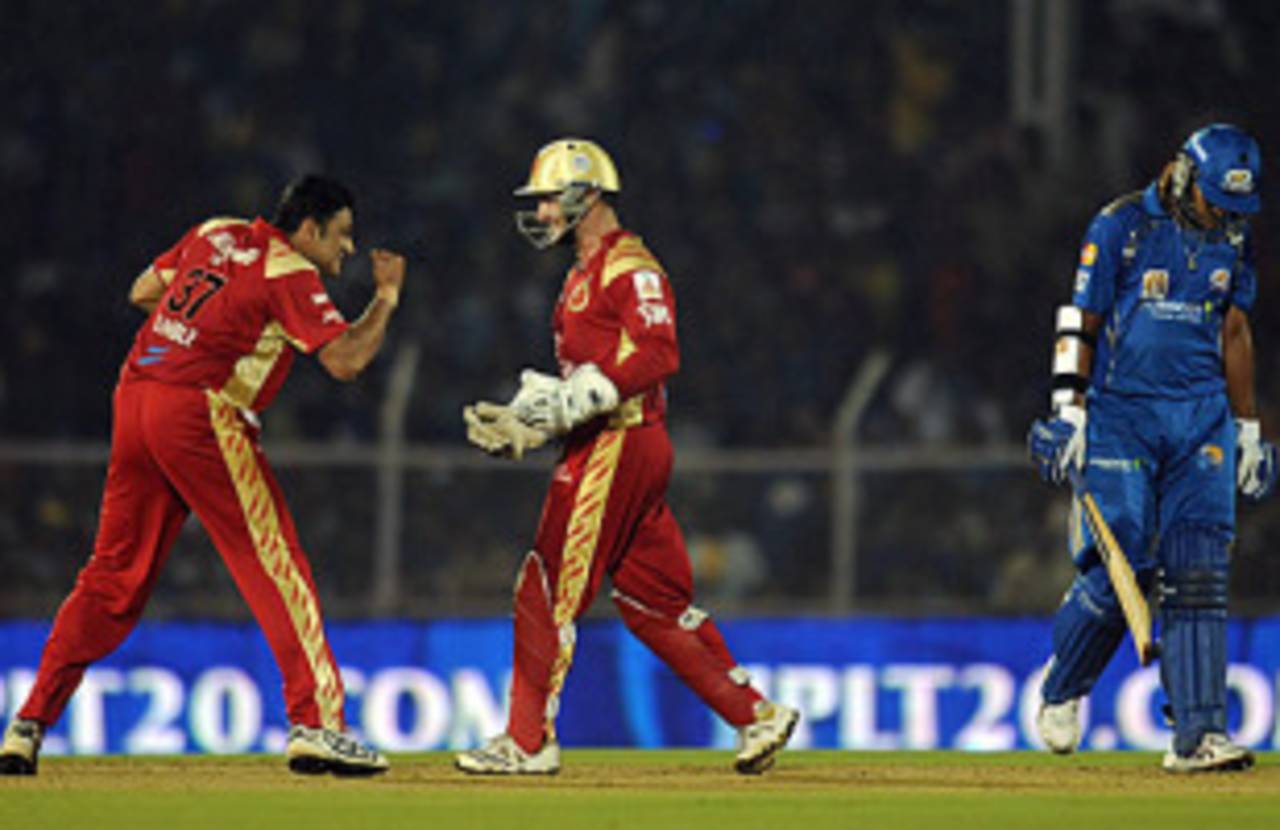Overlords, seducers, associates
The importance of captaincy in Twenty20 cannot be overstated. A look at the most common methods

Kumble has been a marked improvement on Pietersen as Bangalore captain in the IPL • Indian Premier League
Some mistake this sort of captaincy with just performance on the field, but there's more to it. The captain's conduct is the easiest way to send a message across. If a captain is disciplined, like Rahul Dravid or Ricky Ponting, whose work ethics are immaculate, the team follows suit automatically. You'll see both Dravid and Ponting do fielding drills even after a long training session, when they can easily be avoided, and that's signal enough for others to go the extra yard. Perhaps the one-handed catch Dravid took against the Mumbai Indians last week wouldn't have been possible without those extra drills.
Captains use this form of leadership to use on newcomers, who need to be given instructions, depending on the situation of the game and the player's role in the team. That's exactly what happened when I played for India: I was told about the role I was supposed to play in no uncertain terms and there was no room for negotiation. One may think this sort of thing may be a hindrance in the growth of a player but the exact opposite is true. It prepares a player to adapt to the different demands of the game and hence makes him a better player in the long run. You're taught right at the beginning to put the team ahead of yourself. If the need of the hour is to occupy the crease and build a partnership, you must put your head down and resist the temptation to be adventurous. Similarly, if you need to throw caution to the winds in the slog overs, you should not think twice about sacrificing your wicket.
This form of leadership works with players who've started to find their feet but still haven't made it. You dangle a carrot to get the best out of them. You set targets for them, and if they achieve them you reward them in return. For example, asking the Virat Kohlis and Robin Uthappas to be more consistent while batting at six or seven and rewarding them by promoting them up the batting order after a while. You do such things with people who you genuinely believe have talent and need some encouragement to fulfill their potential. It seems to be this method that Kumble is employing in the Royal Challengers side.
Once a player is comfortable with his game and knows most of what needs to be done, the captain makes him a part of the decision-making process. They discuss strategies and make plans together. The captain asks the player for his opinion, and instead of giving orders makes suggestions. This is the sort of method Tendulkar is probably employing with Zaheer Khan at the moment: he has faith in Zaheer's ability and knows he doesn't need every last thing spelled out for him. So they form a partnership of sorts, where both give inputs and the captain gets things done.
As a player, if I know that my captain is going to stand by me, I'll happily stretch that extra bit. But if I'm not sure, like I personally wasn't with Brendon McCullum for Kolkata last year, I'd hold back. Why would a player do anything for a captain who doesn't even remember his name?
There comes a time when a player is so experienced, he doesn't need to be told, at all, what to do. He knows what works best for him and no amount of persuasion will make him think otherwise. To get the best from such a cricketer, the captain must respect his experience and allow him to do whatever he's comfortable with. If he's at his best batting a certain way or bowling to a certain field, the captain should allow that to happen as far as possible, as long as it's not ruining the team's chances of winning. In turn, the player acknowledges that freedom and rarely lets the captain or team down. The art here is to get someone to do something you want done because he wants to do it. This is probably the sort of leadership Kumble must be employing with Jacques Kallis at the moment. This season Kallis has been given the freedom to bat at his own pace (though obviously not too slow), while others around him complement his efforts by going after the bowling.
Former India opener Aakash Chopra is the author of Beyond the Blues, an account of the 2007-08 Ranji Trophy season. His website is here